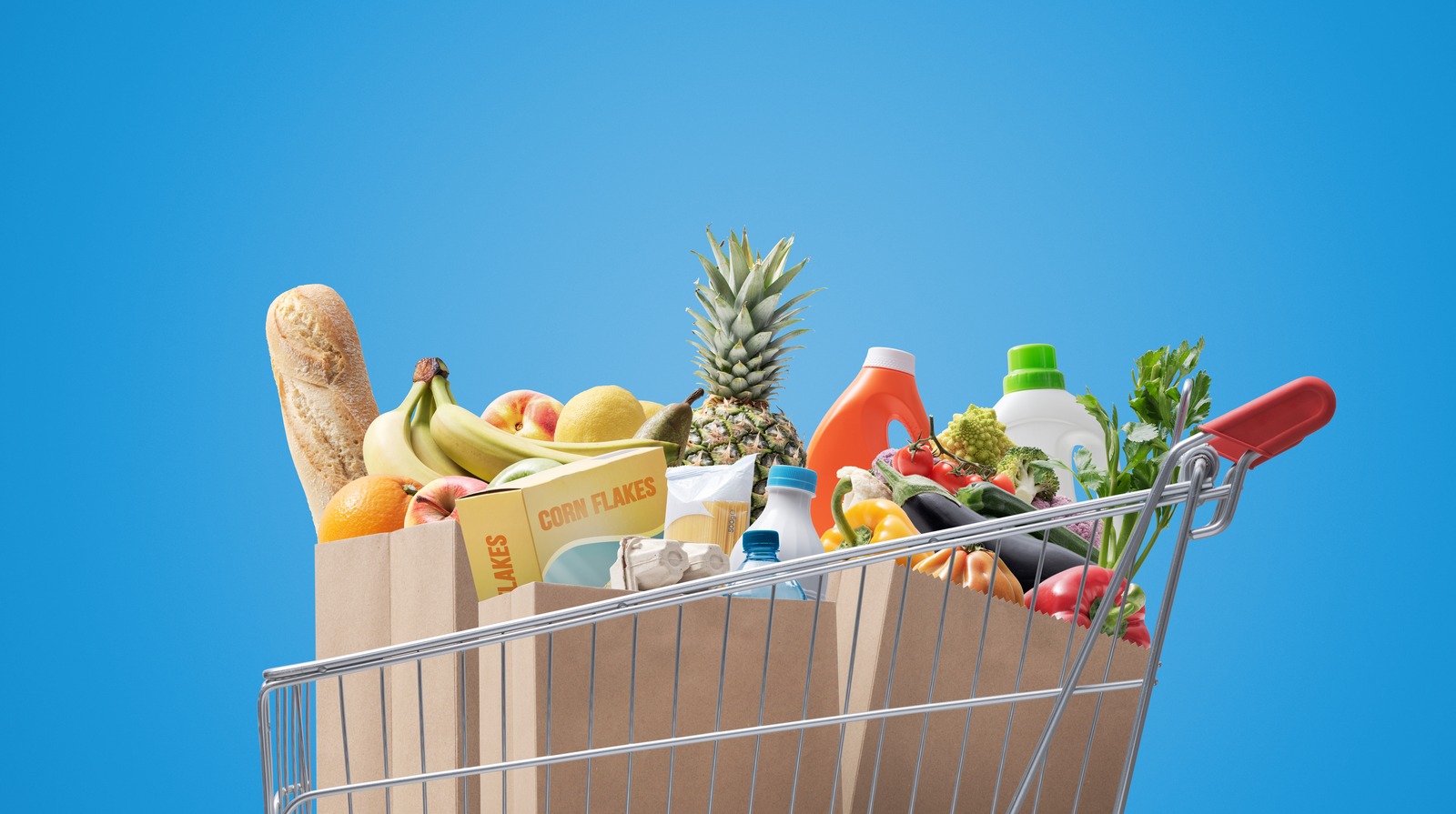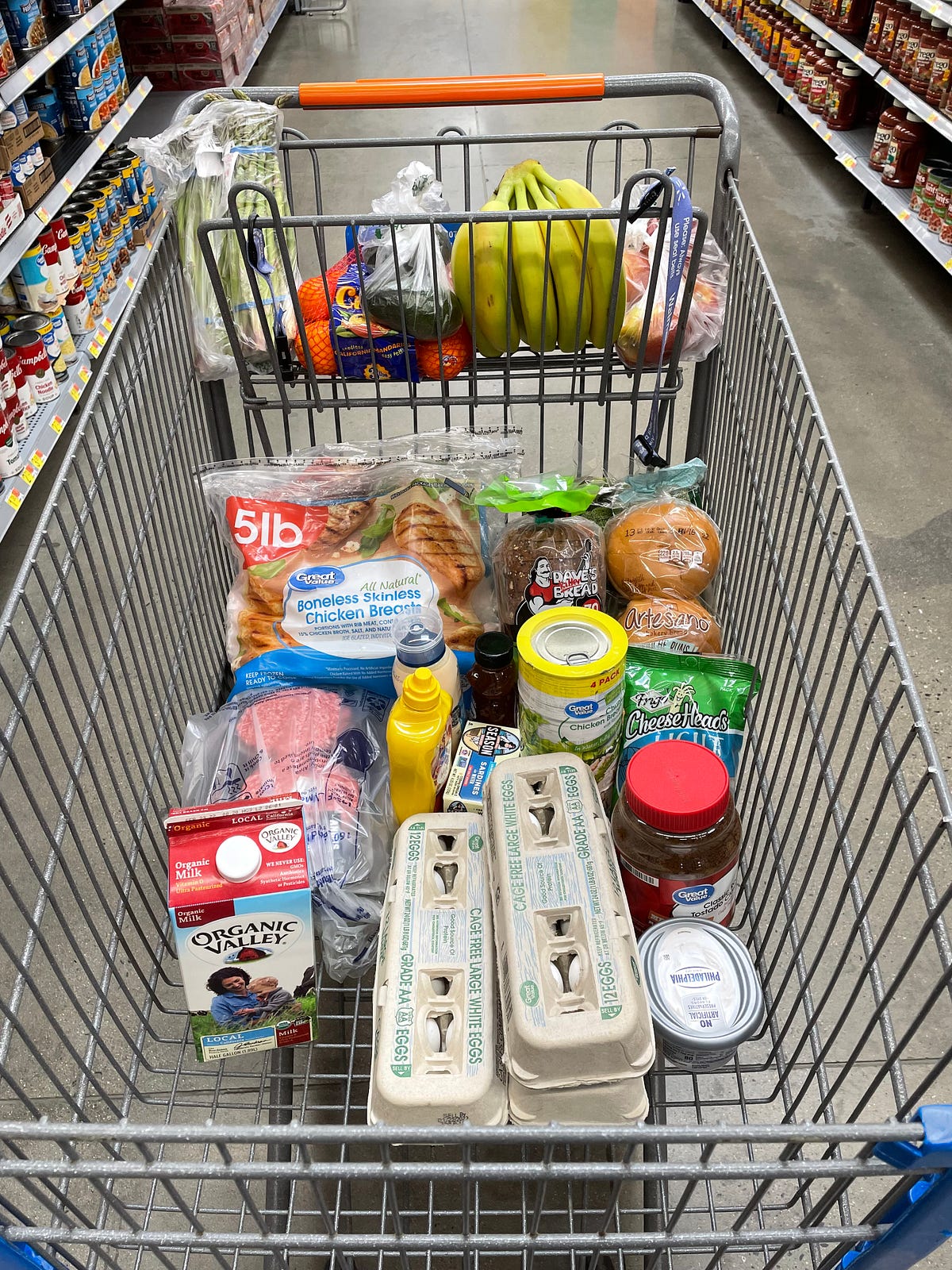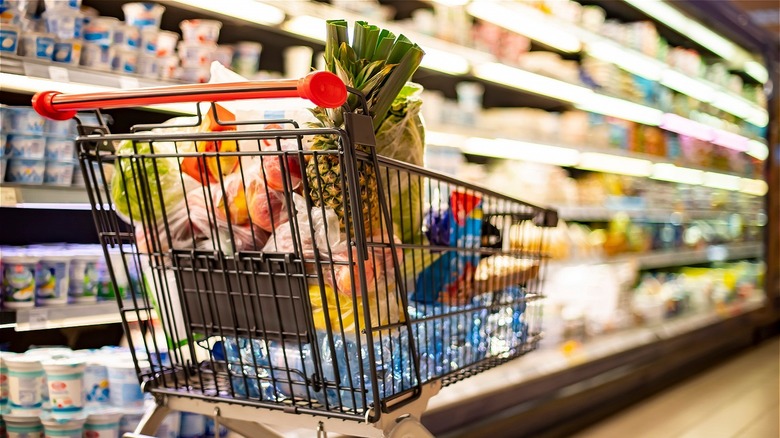Have you ever stopped to think about what a trip to the grocery store really means? It's almost, you know, more than just picking up food. For many, it's a routine, a quick errand, or just a chore to get through. But if you look a little closer, this everyday activity holds a surprising amount of significance. It's not simply about filling a cart; it’s often about something much deeper, something that touches on our comfort, our routines, and even our sense of community.
For some people, the whole idea of grocery shopping is, in a way, a chance to step away from things. It could be an excuse to go for a relaxing drive, maybe even to grab some coffee while you're out. This perspective shifts the focus from the task itself to the quiet moments surrounding it. It suggests that the value isn't just in the items you buy, but in the small, personal breaks you get along the way, making the whole thing a bit more pleasant, perhaps.
And when we talk about the "grocery experience meaning," we're really looking at all the layers involved. It’s about the place itself, the people who work there, and even the kinds of things we bring home that aren't strictly food. It's a rather rich tapestry of daily life, if you think about it. So, let's explore what this common outing truly represents for many of us, today, on May 22, 2024.
Table of Contents
- Beyond the Basket: What We Actually Buy
- The Store as a Sanctuary: More Than Just Aisles
- The Human Connection: Faces Behind the Counter
- The Pride of Place: Seeing Your World Reflected
- The Subtle Rituals: Finding Joy in the Everyday
- FAQs About Grocery Experience Meaning
- A Final Thought on the Grocery Experience
Beyond the Basket: What We Actually Buy
When you consider the full grocery experience meaning, it’s pretty clear that our carts often hold more than just milk, bread, and vegetables. There are so many items we pick up that aren't, strictly speaking, "groceries." Think about it: things like cleaning supplies, personal care products, or even a new magazine. My text, for example, mentions looking for a term to cover these very things, items we frequently buy but aren't actually food. It’s almost like the grocery store has become a one-stop shop for a huge range of household needs, which is quite convenient, really.
This expansion of what a "grocery store" offers means the shopping trip itself has changed. It’s not just about stocking the pantry anymore. It’s about stocking the bathroom, the laundry room, and even the entertainment shelf. This makes the trip more efficient, certainly, but it also broadens the entire concept of what we’re doing when we go "grocery shopping." It’s a very practical aspect of the grocery experience meaning.
The term "grocery store" itself is typically used for supermarkets, as my text points out. And these places, these large venues, have certainly grown to include a vast array of goods. It’s a bit like how a "nail spa" is still a "nail salon"; the name points to the primary service, but the offerings have grown. So, while we call it a grocery store, it's really a general goods outlet for a whole lot of things we use every single day. You know, it’s not just about the edibles.
We might grab a new toothbrush, some paper towels, or a greeting card. These are all common purchases, yet they fall outside the traditional idea of "groceries." This broad selection means fewer separate trips to different stores, which, honestly, saves a lot of time and effort. It really adds to the overall utility and convenience of the place, shaping what the grocery experience meaning is for many busy folks.
So, the contents of our basket tell a story, too. They show how these places have adapted to our needs, becoming central hubs for almost everything that keeps a home running smoothly. It's a rather subtle shift, but a significant one in how we view these shopping trips. It’s not just about food; it’s about life’s little necessities, too.
The Store as a Sanctuary: More Than Just Aisles
For some, the physical space of the grocery store itself holds a particular kind of meaning. It’s not just a building with shelves. Sometimes, it can feel like a quiet escape, a place where you can just, you know, wander a bit. My text touches on the idea of grocery shopping as an "excuse to go for a relaxing drive." This suggests the journey *to* the store, and perhaps the time *within* it, can be a form of personal downtime. It's a quiet moment away from other demands, a little pause in a busy day.
The layout, the lighting, the familiar sounds of carts rolling by—all these things can contribute to a sense of order and predictability. In a world that often feels chaotic, a well-organized supermarket can be, in a way, a comforting place. It’s a space where things are where they should be, and you can, more or less, find what you need without too much fuss. This structure provides a subtle sense of calm for many shoppers.
Consider the atmosphere. Some stores are bright and lively, others a bit more subdued. But they all offer a degree of anonymity that can be, for some, quite appealing. You can move at your own pace, think your own thoughts, and just be present with the task at hand. It’s a bit like a personal bubble, allowing for a moment of quiet reflection amidst the everyday hustle. This quiet solitude contributes to the grocery experience meaning for many.
Even the simple act of pushing a cart can be, you know, somewhat meditative. It’s a repetitive motion, a clear goal, and a distinct boundary for your attention. This focus on the immediate task can help clear your mind, even if just for a little while. It's a very accessible form of quiet time, almost like a mini-retreat built into your weekly errands.
The store, then, becomes more than just a place to exchange money for goods. It can be a temporary refuge, a spot for a mental break, or just a consistent presence in a changing world. It's a rather understated but significant part of the overall grocery experience meaning for many people, providing a sense of normalcy and, perhaps, a little peace.
The Human Connection: Faces Behind the Counter
The people we encounter during our grocery trip also add a lot to the overall grocery experience meaning. My text talks about "one who works at a sales or service counter," often called a "check out clerk." These individuals, along with cashiers, stockers, and salespersons in larger stores, are part of the human fabric of the shopping trip. Their interactions, even brief ones, shape how we feel about the visit.
A friendly face, a quick greeting, or a helpful pointer can make a big difference. It's not just about scanning items; it's about the small exchanges that remind us we're part of a community. You know, a pleasant word from the person bagging your groceries can really brighten your day, even if just for a moment. These brief connections are, in a way, tiny social rituals that happen every day.
For some, seeing the same familiar faces each week builds a sense of continuity. There's a comfort in knowing the person at the deli counter remembers your usual order, or that the cashier asks how your day is going. These aren't deep conversations, certainly, but they are moments of recognition that foster a feeling of belonging. It’s a very human element in what could otherwise be a purely transactional process.
These interactions, however small, contribute to the store's atmosphere. They can make a place feel welcoming and personal, rather than just a large, impersonal warehouse. It's like, the people working there are the heart of the place, giving it a unique character. This human touch is a rather important part of the grocery experience meaning, adding warmth to the routine.
So, the next time you're checking out, take a moment to acknowledge the person helping you. Those brief moments of connection are a vital part of what makes the grocery experience more than just a task. They truly add a layer of humanity to our daily errands, making them, you know, a bit more enjoyable.
The Pride of Place: Seeing Your World Reflected
There's a rather unique aspect of the grocery experience meaning that comes from seeing products you've created or contributed to on the shelves. My text mentions, "Seeing my stuff at your grocery is a great source of pride." This highlights a very personal connection that some people have with these stores. It's not just about buying; it's about contributing, seeing your work, your effort, or your community's products represented. This is a very powerful feeling, indeed.
For a local farmer, a small-batch baker, or an artisan, having their goods in a neighborhood grocery store is a huge milestone. It means their hard work is valued, accessible, and reaching people in their own community. It’s a very tangible form of success and recognition. This connection between local producers and the store strengthens the community bond, too.
This sense of pride extends beyond direct producers. It can also be about seeing products from your region, your culture, or even a brand you personally admire. It’s a feeling of validation, knowing that what matters to you is also valued by the broader market. It’s a bit like seeing a piece of your own identity reflected back at you from the shelves. This connection to local goods really shapes the grocery experience meaning for many.
The grocery store, in this sense, becomes a showcase for local talent and industry. It’s a place where the community’s efforts are put on display, ready for everyone to appreciate and purchase. This supports local economies and fosters a sense of collective achievement. It’s a very positive feedback loop, you know, for everyone involved.
So, the next time you're browsing the aisles, consider the journey of the products you see. Many of them represent someone's passion, someone's livelihood, and a deep sense of pride. This connection to the source adds a whole new dimension to the grocery experience meaning, making it much richer than just a simple transaction.
The Subtle Rituals: Finding Joy in the Everyday
The grocery experience meaning is also deeply tied to the subtle rituals we create around it. It’s not always about grand gestures; sometimes, it’s the small, repeated actions that give an activity its true significance. As my text suggests, the trip might just be an "excuse to go for a relaxing drive and get some coffee." This points to the idea that the journey itself, and the little indulgences along the way, are part of the overall experience.
Think about your own habits. Do you always go on the same day? Do you have a favorite route to get there? Perhaps you always grab a specific treat for yourself after you’ve finished shopping. These small, personal traditions turn a mundane chore into something a bit more special, something you might even look forward to. They add a layer of personal enjoyment to the routine, which is very human, really.
The act of planning your list, navigating the aisles, and even loading your car can become a familiar dance. There’s a comfort in this predictability, a quiet satisfaction in completing a necessary task efficiently. It’s like a small victory each week, knowing you’ve stocked up and are ready for the days ahead. This sense of preparedness is, you know, a very reassuring feeling.
These rituals are often unconscious, but they shape our perception of the entire outing. They transform it from a simple errand into a meaningful part of our week, a quiet moment of order in a busy life. It’s a bit like a personal rhythm that helps us feel grounded. This personal touch is a rather significant part of the grocery experience meaning for many people.
So, the next time you head out, pay attention to these small customs. They are the threads that weave the grocery trip into the larger fabric of your life, giving it a unique and personal significance. They truly elevate the experience beyond just buying things, making it, you know, a bit more enjoyable.
FAQs About Grocery Experience Meaning
What is the true meaning of a grocery trip?
The true meaning of a grocery trip extends far beyond just buying food. It can be a chance for a relaxing drive, a moment for personal reflection, a connection with community members, or even a source of pride for those whose products are on the shelves. It’s more or less a multifaceted experience that touches on convenience, routine, and social interaction.
Why do people enjoy grocery shopping?
People enjoy grocery shopping for various reasons. Some find it relaxing, a bit like a quiet escape from daily pressures. Others appreciate the sense of control and order it offers, or the brief, friendly interactions with staff. For many, it's about the subtle rituals they’ve built around the trip, like getting coffee beforehand, making the whole thing a bit more pleasant, you know.
What non-food items do people often buy at grocery stores?
People frequently buy a wide range of non-food items at grocery stores. This includes things like cleaning supplies, personal care products, pet food, paper goods, household items, and even small electronics or seasonal decorations. The modern grocery store, in a way, has become a convenient hub for almost all household necessities, not just groceries.
A Final Thought on the Grocery Experience
The grocery experience, when you really think about it, holds a lot of personal and cultural significance. It's a rather common activity that, you know, means different things to different people. It’s about the items we gather, the places we visit, the people we meet, and the quiet routines we build. Consider how your own trips add to your life’s rhythm. To discover more about everyday routines, you might want to learn more about daily habits on our site, or even explore this page for other insights. What does your grocery experience mean to you?



